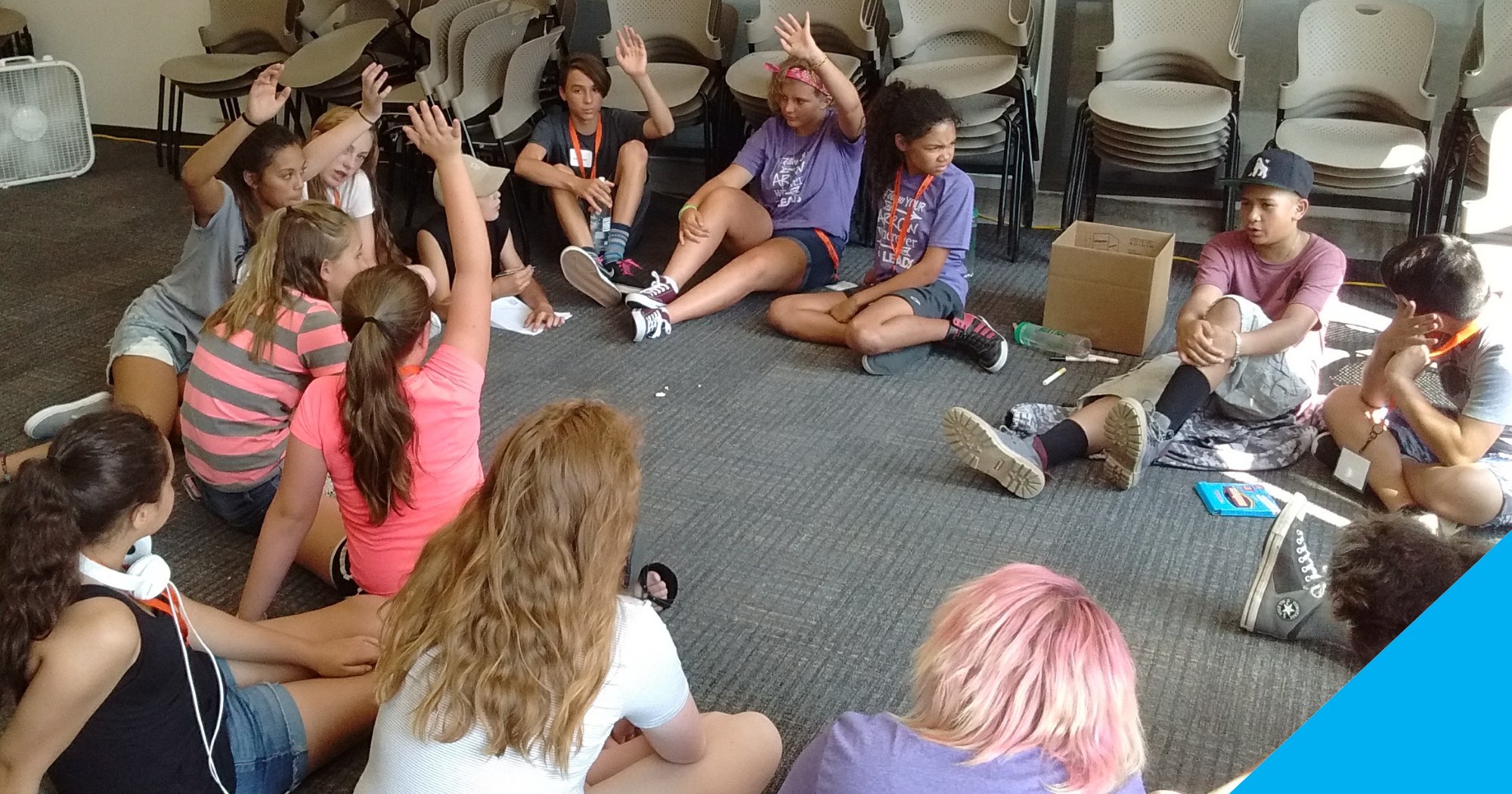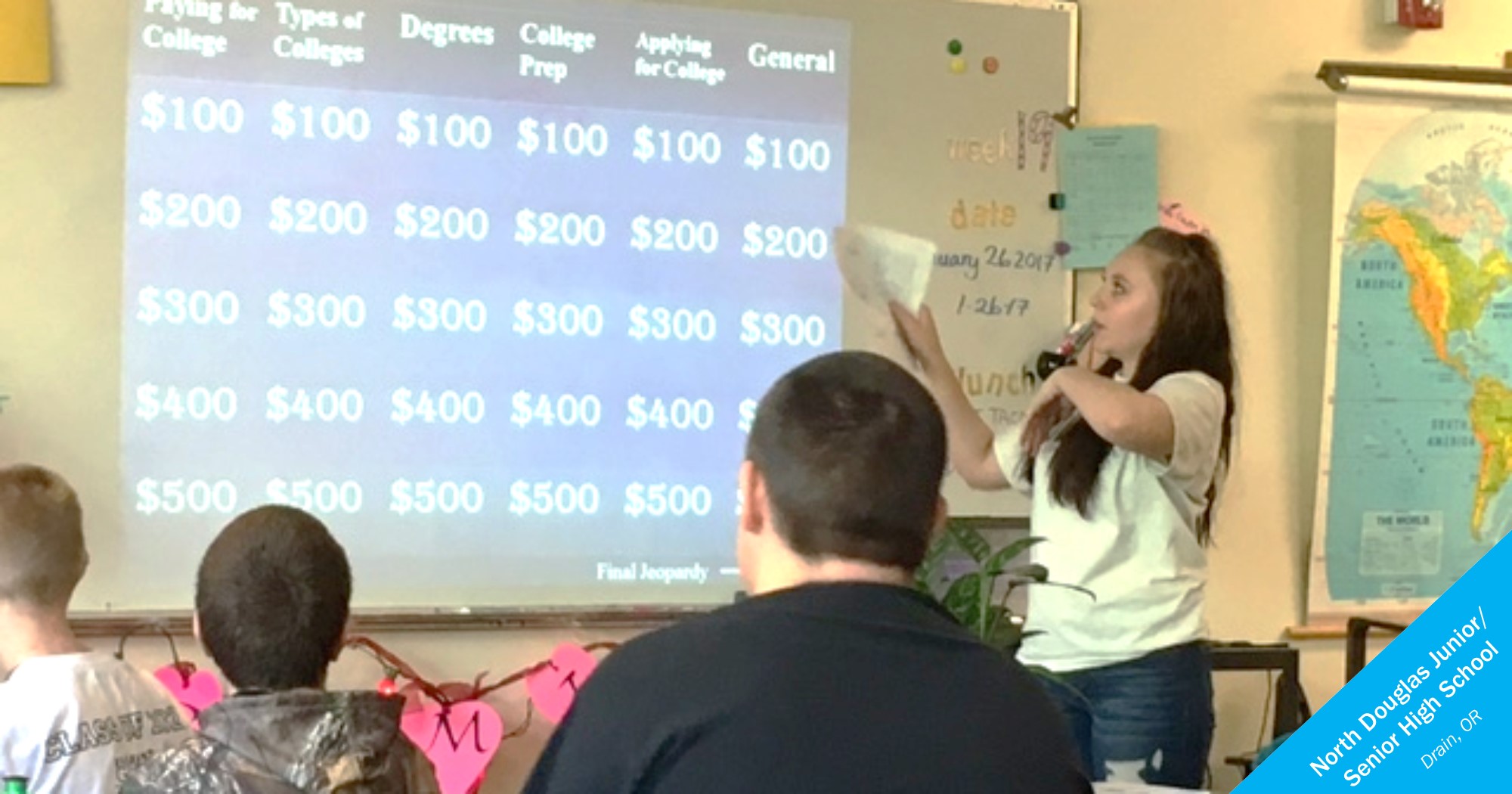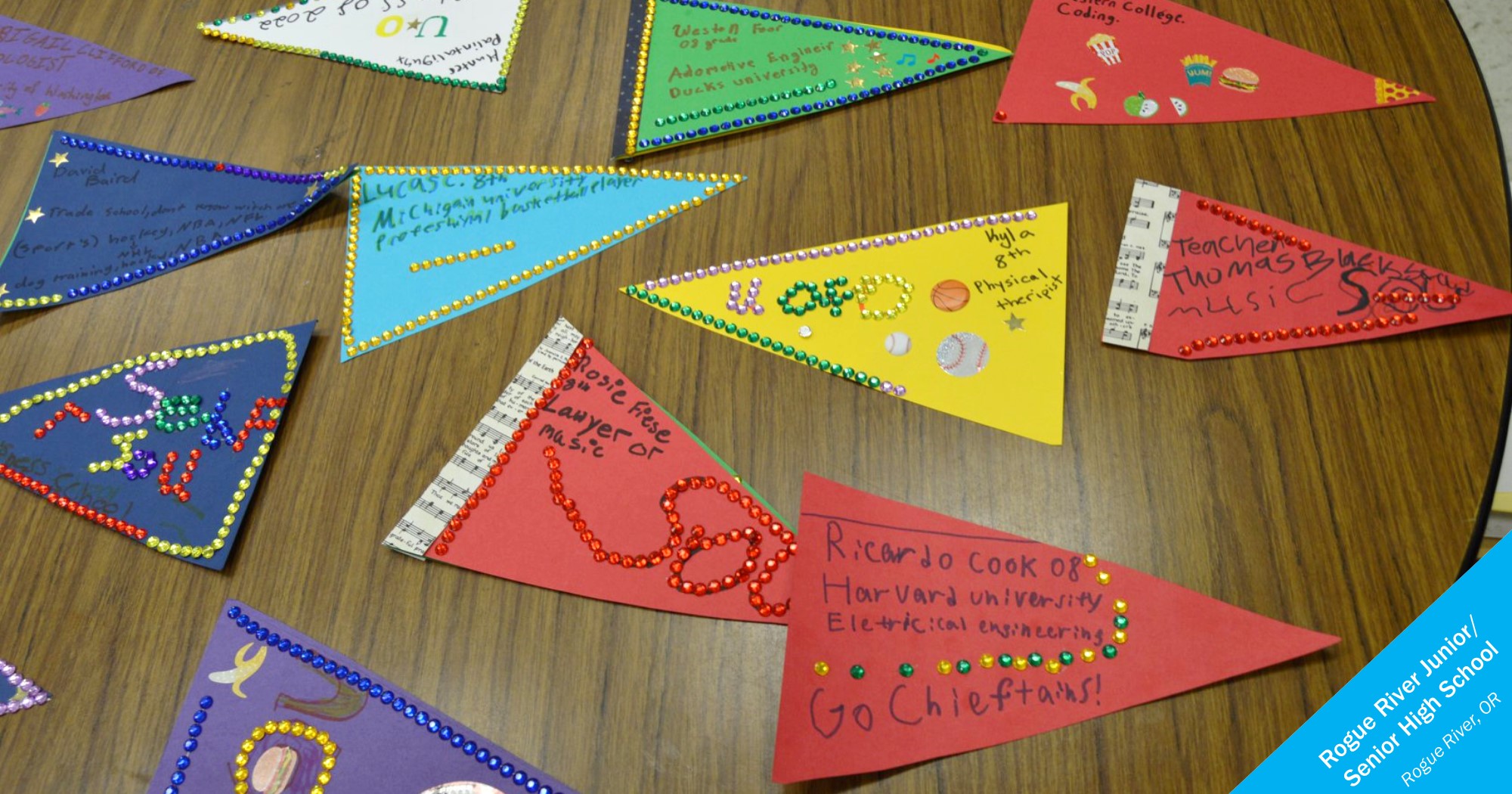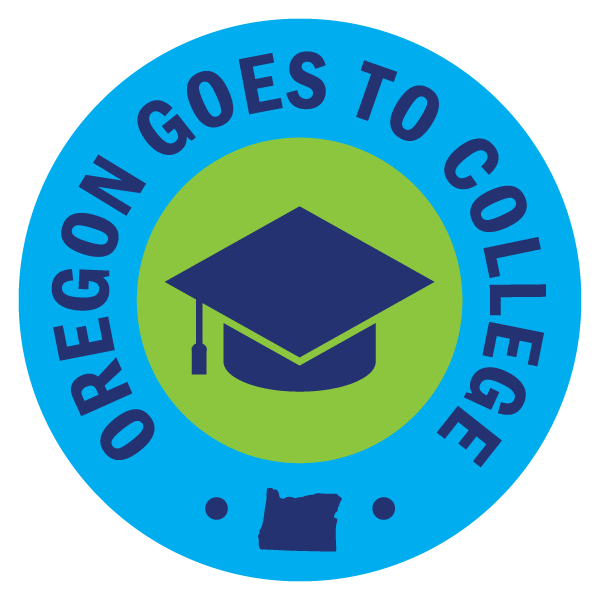
Learn how to use games and activities strategically to build students and families' college knowledge.
Engaging games and activities work well to introduce or reinforce college knowledge topics and can be used in classrooms, workshops and meetings with students, parents and educators.
Table of contents
★ = Oregon Goes To College resource
Why college knowledge games matter
Research has shown that students with lower levels of information about college, especially information focused on cost and aid are less likely to expect to attend, apply for admission or actually enroll in college. Students of color, low-income parents and parents who have no direct personal experience with college are more likely to lack this “college knowledge”.
Research also says that games can be effective learning tools, by engaging students to explore, build, collaborate and win. Games can be effective in increasing student motivation and interest; however, experiential learning must be paired with learner support including an opportunity to reflect.
Planning a college knowledge game
Learning can be fun. Students as well as parents and educators can benefit from engaging activities that challenge knowledge, spur reflection, require teamwork and build connections.
Games and activities work well to introduce or reinforce topics and can be used in classrooms, workshops, staff meetings and in many other situations. Use our Activity Planning Guide ★ to help you strategically outline your game.
Identify audience and size
The first step is to identify the audience. Is it students, parents or educators? What grade level?
Also consider the size that your game or activity can accommodate. Is there a minimum or maximum number of participants?
Choose a topic and goal
Next, decide on the key concept or topic for the activity. What do you want participants to learn? Use our 101 College Trivia ★ and 101 College Terms ★ as a starting place.
Ideas for topics
- College types & degrees
- Preparing for & applying to college
- Paying for college
- College vocab & support services
- Specific colleges
- College entrance test prep
- College and career self-reflection
Also, be intentional about your goal for the game. Is it to introduce or reinforce a topic? Do you want participants to work with others and build relationships or work individually and self-reflect?
Consider time and materials
Consider the amount of time it will take to introduce, play and debrief the game. If an activity will take more than 30 minutes, consider breaking it up into two sessions. Make a list of materials needed as well.
Outline the activity
Write a brief introduction to the game, including the goal you’ve identified (“We are going to start with an activity to get to know ourselves and each other.”) Outline the basic rules (“Here’s how it will work…”)
Include time to debrief
Finally, identify a few open-ended questions for reflection to be used in the debrief that reiterates the purpose. (“What did you learn? Why is this important?”) This gives participants an opportunity to reflect on what they have learned, listen respectfully to others, and become more bonded to a group.

Types of games and activities
See below for specific examples of games in three main categories: get to know the group, group competition, and individual activities. However, almost any of the activities can be adapted to a different topic or audience—be creative and feel free to mix and match. Encourage students to develop their own activities and lead them for a younger group.
Get to know the group
Commonly known as icebreakers, these types of activities encourage participants to interact with each other and build relationships.
Catch & Throw Intros: Participants introduce themselves and respond to a prompt (e.g. a career they are interested in, a college they want to learn more about) when they have a ball or other soft object before throwing it to another participant.
Alliteration Intros: Participants go around the room and introduce themselves with their first name plus a noun or adjective that starts with the same letter (e.g. a college plus first name like “Pacific Patrick”). Challenge the group to repeat back each name combination before they share.
M&M Intros: Participants select a small handful of M&Ms and share one fact about themselves based on the colors in their hand (e.g. red = a career you’re interested in, orange = favorite subject in school, yellow = student club you’re in, green = college you want to learn more about, blue = random fun fact, brown = something you are nervous or excited about for college).
Categories: Participants get up and moving and see what they have in common with others in the room. Add categories related to college and careers (e.g. favorite Oregon college or how many campuses visited).
College Human BINGO ★: Participants get up and moving to find others who fit the criteria on their BINGO cards.
Agree/Disagree: Participants silently share their opinions on statements (e.g. I want to go to college or I am nervous about going to college) by physically moving across the room. Great as an introductory activity before group conversations.
Group Rock-Paper-Scissors: Participants introduce themselves to another person before challenging them to a game of rock-paper-scissors. The loser then joins the winner’s team who finds another team to play until there is a final winner.

Group competition
Competition is an easy way to engage participants and builds teamwork and collaboration. Consider giving a small prize to the winning team to incentivize participation.
Ideas for prizes
- Food: Candy or snack item
- Special privileges: Choose music to play during breaks, extra recess or lunch privileges
- School supplies and swag: Pencils, pens, stickers
- Money Template ★: Use at a school or classroom store
Game shows
Jeopardy: The classic answer-and-question show is easy to adapt to just about any topic. Download a PowerPoint template, play it online, or use an app.
Wheel of Fortune: Great to reinforce key college vocabulary. Give bonus points if the team can define the term after correctly guessing it. Don’t have access to a computer or technology? Use a whiteboard or piece of paper to play Hangman instead. Download a PowerPoint template or use an online wheel.
Trivia/Knowledge Bowl: Teach and test knowledge with a trivia competition.
Kahoot: Free online learning game maker. Make your own or use our College Kahoots ★.
Family Feud: Participants work together and individually. Download a PowerPoint template or use our instructions for College Trivia Games ★.
Board and card games
College Taboo: Reinforce college vocabulary. Use our instructions in College Trivia Games ★.
College Poker: A fun way to use trivia questions. Use our instructions in College Trivia Games ★.
Pictionary: Reinforce college vocabulary with a creative twist; one participant draws a term while the others guess.
Party and carnival games
Career Charades: An interactive game for large or small groups. Consider having two people work together to act out a career.
College BINGO ★ (coming soon): Use to reinforce college terms or get to know Oregon colleges.
Swat! Game: A fast-paced game to introduce or reinforce financial aid vocabulary. Use our Financial Aid Swat! Game ★ or College Terms Swat! Game ★.
Hot Potato: Useful as a getting to know you game or to reinforce college knowledge. Use our instructions in College Trivia Games ★.
20 Questions: Low-tech and easy to adapt to just about any topic. See example instructions in College Trivia Games ★.
Where Am I?: Good for getting to know colleges. Use our instructions in College Trivia Games ★.
Talent show
Commercial/PSA: Participants work in small groups to perform a commercial or public service announcement (e.g. info about a college or behavior, such as filling out the FAFSA or ORSAA). Invite guest judges to award prizes.

Individual activities
Games and activities that can be done individually to learn or reinforce topics as well as provide time for self-reflection.
Word games
College Crossword: Reinforce college vocabulary. Use an online crossword maker or use our Applying to College Crossword ★.
Word Search: Introduce and reinforce college vocabulary. Use an online word search maker or use our Word Search - Key Terms ★ or Word Search - Oregon College Nicknames ★.
Word Scramble: Introduce and reinforce college vocabulary. Simply mix up the letters of common terms and have participants unscramble them.
Creative self-reflection
Display the results in classrooms or in hallways to build a college-going culture throughout your school.
Ideal College: Participants learn about the importance of college fit and consider their ideal college, drawing the results.
DIY College Pennants ★: Students design their own pennants for the college they aspire to or will attend.
Why College? Box Activity ★: Participants reflect on the benefits and challenges of attending college.
Fold Your Future: Participants fold origami graduation caps, then write their future goals for after high school on the top.
